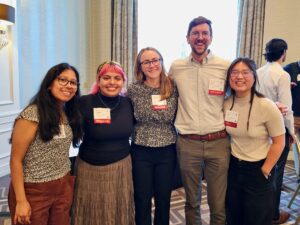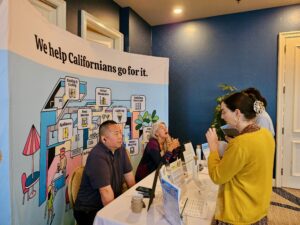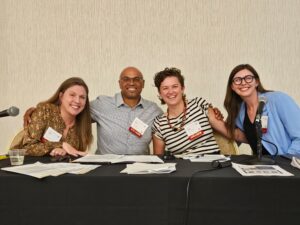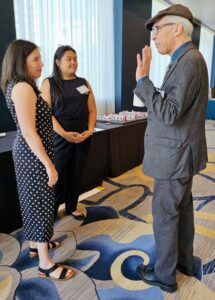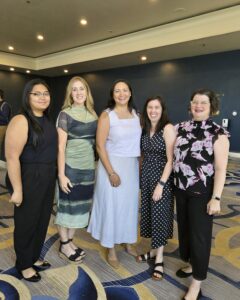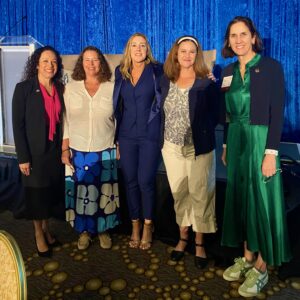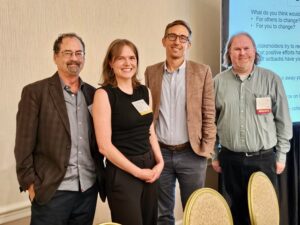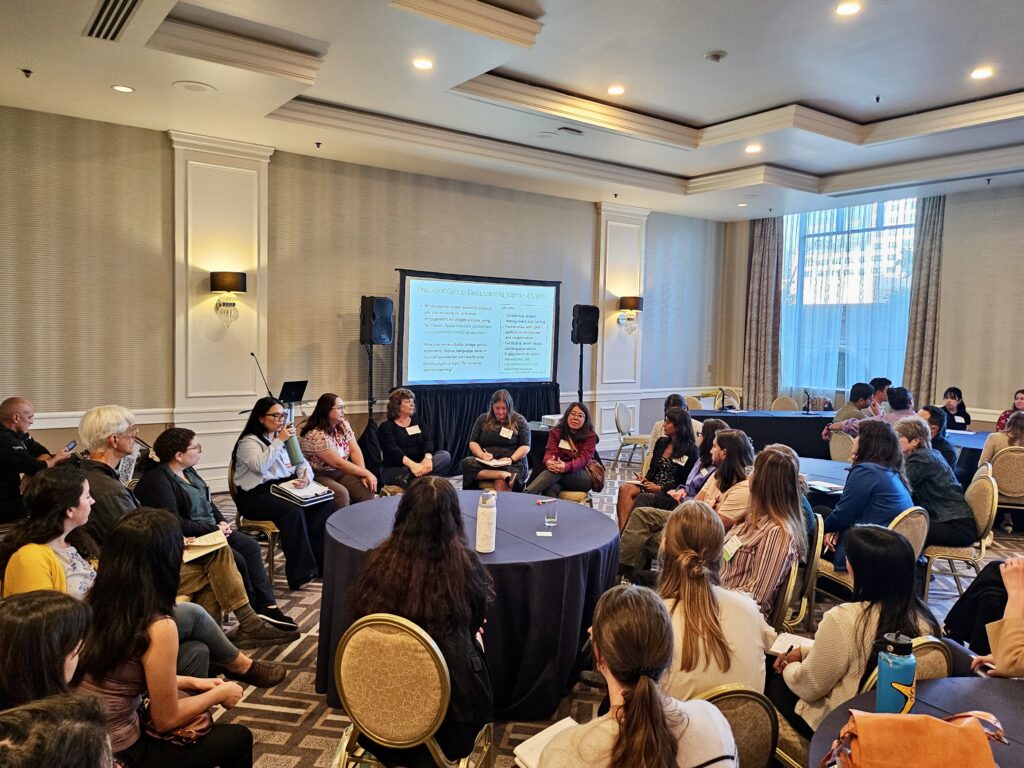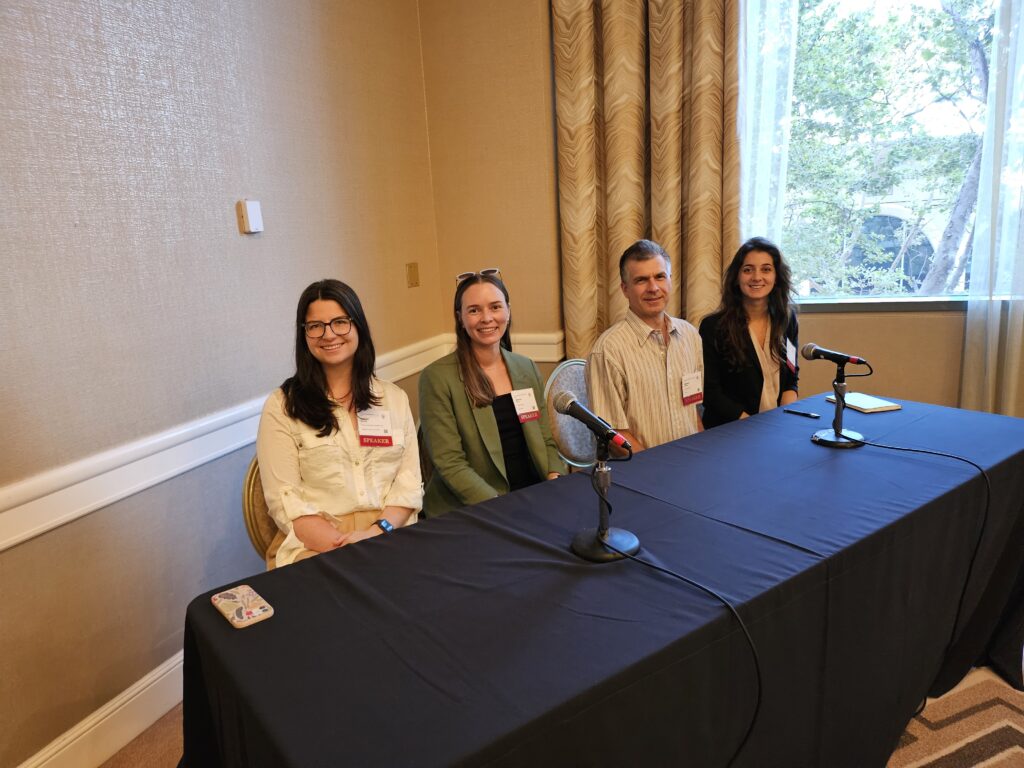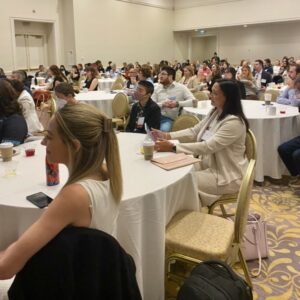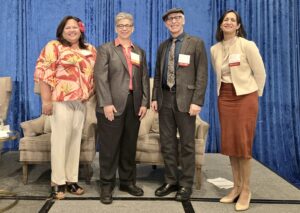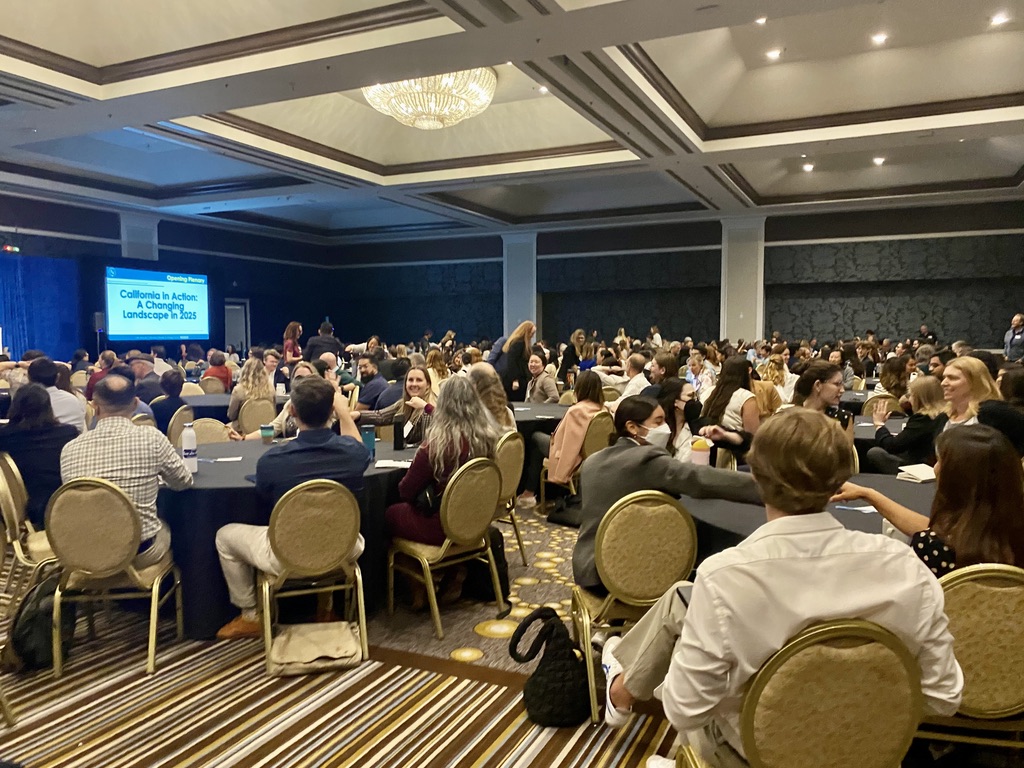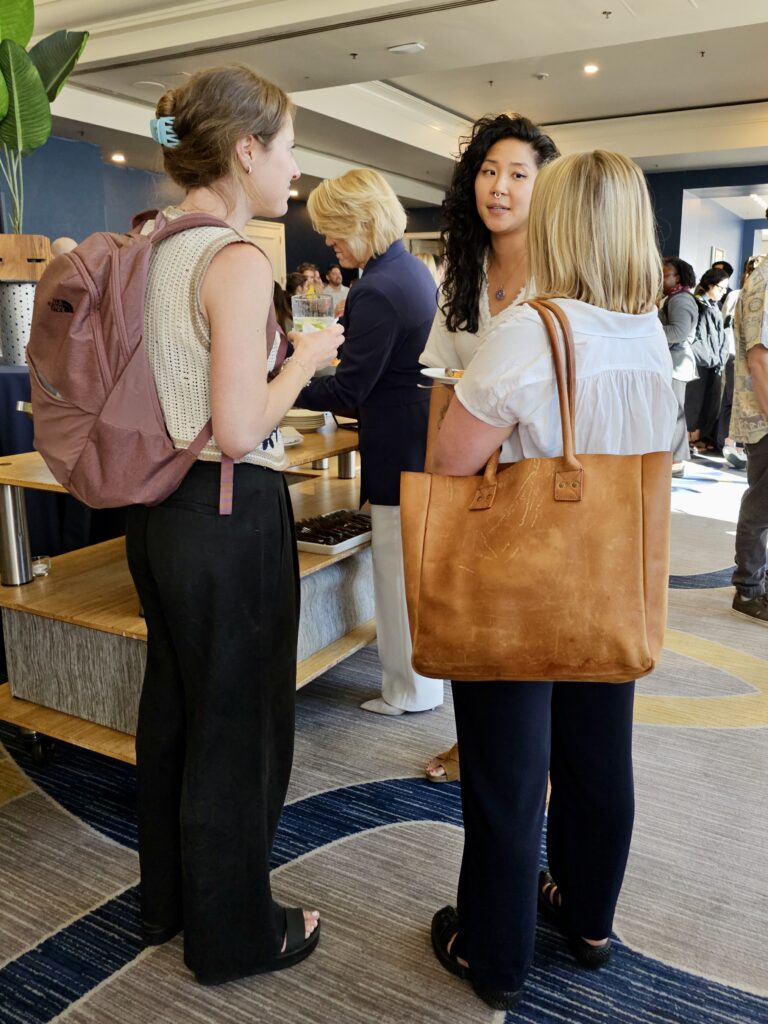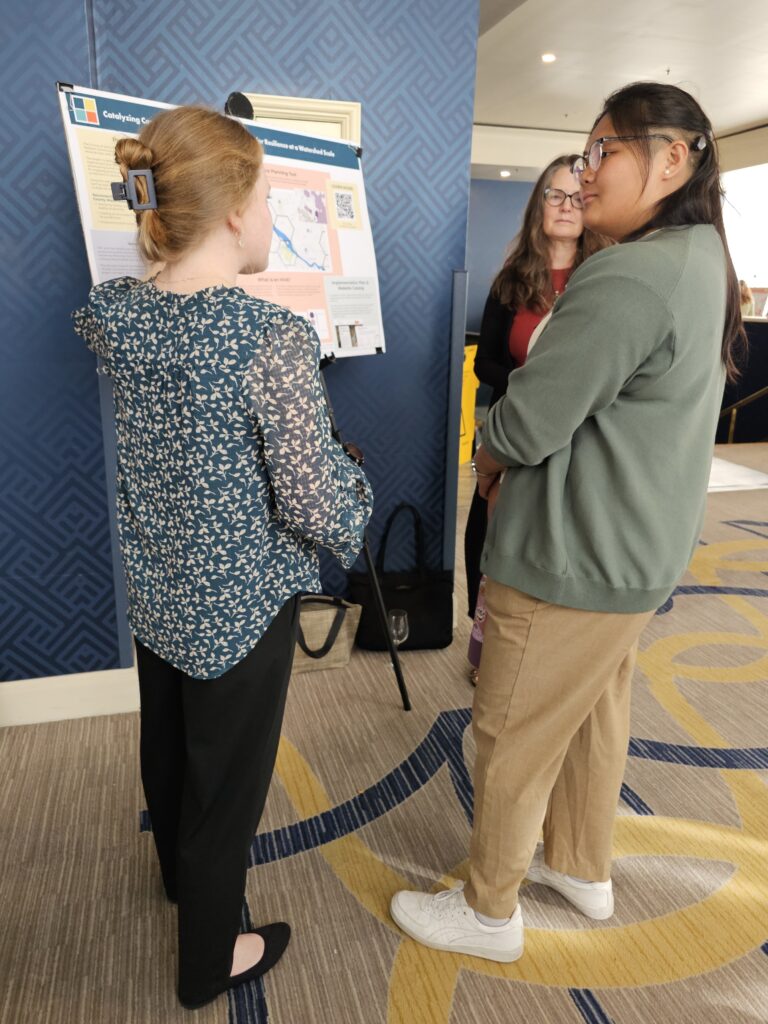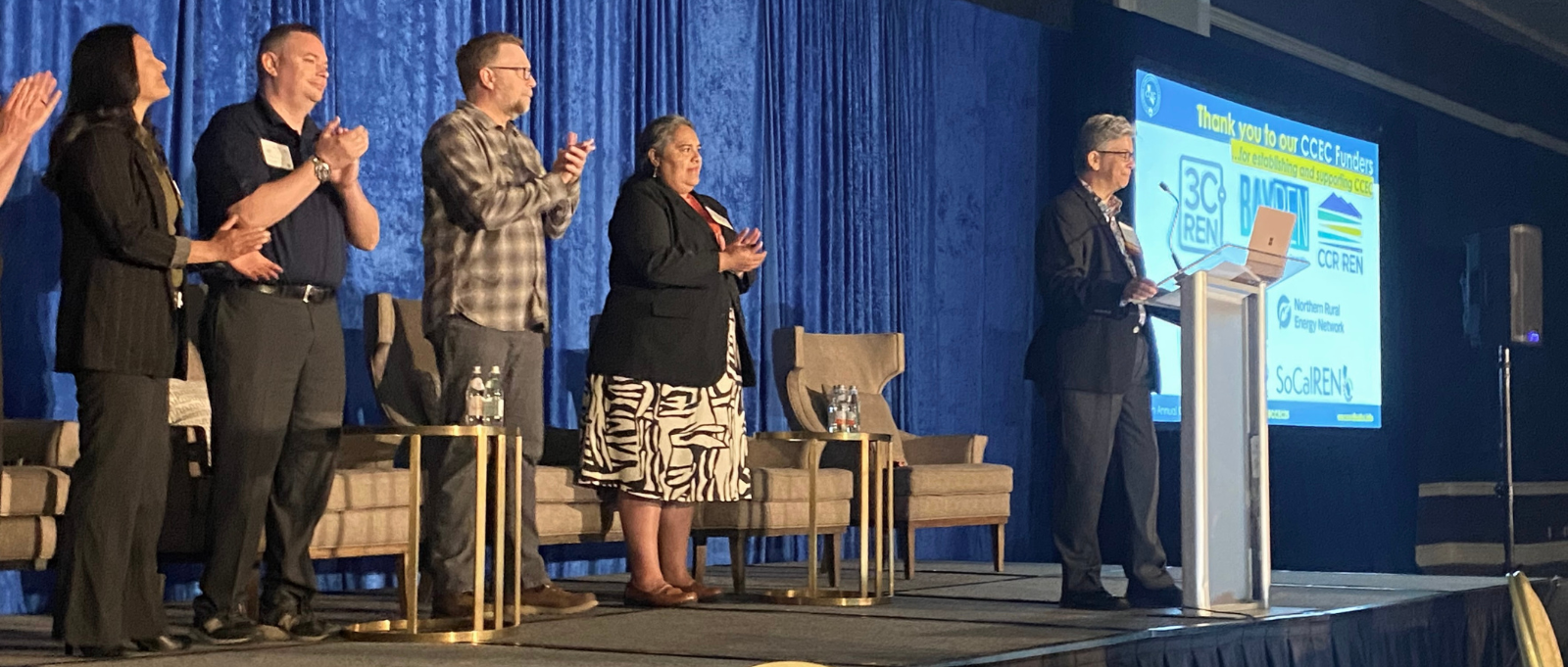July 29, 2025
Topic
Local Leads the Way
By Bernadette Austin
Earlier this month we celebrated the 16th annual California Climate and Energy Collaborative Forum, (CCEC, pronounced “seek”). Convened in partnership with the state’s seven regional energy networks (RENs), a record-breaking 554 attendees explored the theme of “Hope in Action: Local Leads the Way” through a series of engaging panels and interactive workshops. This year’s conference spotlighted the critical role of local leadership in shaping a sustainable future amidst an uncertain climate landscape. The opening plenary featured leaders from the California Energy Commission, California Public Utilities Commission, California Strategic Growth Council, and California Forward. Following the CCEC tradition of spotlighting leaders in the host region, the Day 2 plenary featured civic and community leaders sharing success stories and innovations throughout the greater Bay Area. Collectively, these speakers highlighted significant progress made over the last year while acknowledging the obstacles resulting from a challenging funding landscape and shifting political tides.
- California boasts an all-renewable energy grid most days of the year. Even two years ago, many folks did not think this was feasible.
- Even in the face of both economic and population growth, energy demand has remained flat due to progress made in energy efficiency.
- Last year, 23% of new vehicles sold in California were zero-emission, and California had more than 2 million electric vehicles (EVs) on the road.
- There are now 48% more EV chargers than gas nozzles in the state.
- During the 2024 election, voters approved $10 billion for the Climate Bond to support investing in local communities.
In spite of these successes, CEO Kate Gordon from California Forward was quick to point out that California is the state with the second-highest income inequality in the nation after Louisiana. Civic and community leaders in particular highlighted how they are working to support those most impacted. Executive Director Violet Wulf-Saena of Climate Resilient Communities shared poignant examples of how these impact real Bay Area residents in significant ways, including a family with a sick child who needed energy to power a machine for their health and a senior on a fixed income who had lost their home insurance because of deficiencies related to the roof. Speakers and attendees also noted that priorities include securing funds that help local jurisdictions to implement their Climate Action Plans, addressing recent policy impacts on REACH codes, and reauthorization of the Cap and Trade Program.
The event’s MC Angie Hacker, (who serves as CivicWell’s Statewide Best Practices Coordinator), described the many ways that our partners statewide have done more with less through producing collaborations. CivicWell’s partnership with RENs and their member organizations is a leading example of this. Program Administrator Jane Elias from BayREN celebrated that the regional energy network community has grown from three to seven regions in the last year. Currently, 94% of Californians live in communities represented by RENs, including BayREN representing the Bay Area, CCR REN representing rural communities in Central California, I-REN representing San Bernardino and Riverside Counties in the Inland Empire, Northern REN representing 17 rural counties, San Diego REN, SoCalREN representing 12 counties, and 3C-REN representing the Counties of San Luis Obispo, Santa Barbara and Ventura.
As our field faces funding and policy uncertainty, it is more important now than ever to strengthen our cross-sector partnerships. Stay tuned for forthcoming details on new ways that CivicWell can support collaboration and navigate policy and funding uncertainties.
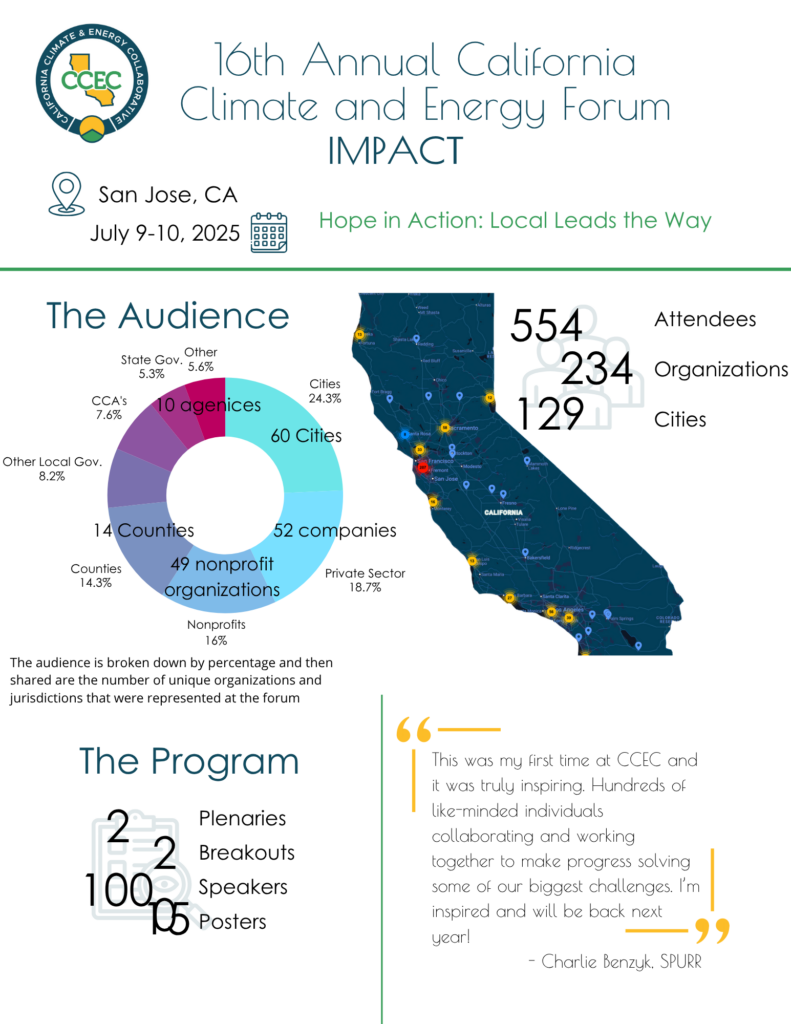
CCEC Forum Photos
